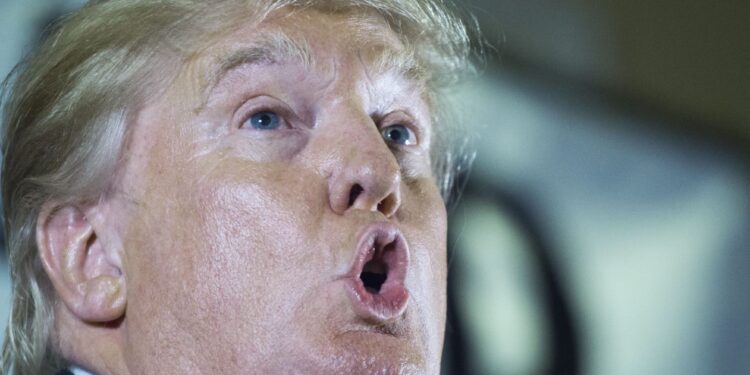Former U.S. President Donald Trump’s public approval has taken a marked downturn in recent weeks, with growing criticism surrounding his legal entanglements, inflammatory rhetoric, and polarising campaign promises. As he seeks to return to the White House in the 2024 election, recent polling shows a dip in support even among segments of the Republican base, raising questions about his electability in a general contest.
Several national surveys conducted in May show Trump’s approval ratings dropping by between three and five percentage points compared to earlier in the year. While he still commands significant loyalty from core supporters, a growing number of independent and moderate Republican voters appear to be distancing themselves from the former president.
At the centre of this decline are Trump’s mounting legal challenges. He is currently facing multiple criminal indictments, including charges related to efforts to overturn the 2020 election results, mishandling classified documents, and alleged attempts to obstruct justice. While Trump has dismissed all charges as politically motivated, the sheer number and seriousness of the cases are causing concern among voters fatigued by controversy.
Critics argue that Trump’s continued attacks on the judiciary and law enforcement institutions are eroding public trust in democratic norms. His rhetoric has become increasingly aggressive, with speeches frequently invoking conspiratorial language and casting the legal process as a form of political persecution. For some voters, this tone undermines confidence in his ability to govern responsibly.
Additionally, Trump’s campaign trail remarks have sparked fresh backlash. He recently reignited debate over immigration by proposing mass deportations and suggesting the use of the military to carry out removals. His stance on reproductive rights has also drawn scrutiny, as he avoids taking a clear position on national abortion policy despite pressure from both pro-life and pro-choice groups.
Further controversy erupted following remarks Trump made during a televised town hall, where he refused to commit to accepting the results of the 2024 election, regardless of outcome. Critics say such statements raise fears of renewed political instability and damage to electoral integrity.
Another source of criticism stems from economic proposals that many economists describe as unrealistic or regressive. Trump has floated plans for sweeping tax cuts, increased tariffs, and a return to isolationist trade policies—positions that some analysts warn could lead to inflation and strained international relations.
Trump’s approval has also suffered among younger voters, suburban women, and minority communities, all of whom played key roles in the 2020 election. While his base remains energised, analysts note a visible erosion of support in key swing states, where undecided voters may hold the balance of power.
Despite the drop in approval ratings, Trump remains the leading contender for the Republican nomination, with rivals struggling to gain significant traction. However, growing dissatisfaction with his leadership style and legal distractions could prove pivotal as the general election approaches.
The current trends suggest a deeply polarised electorate, but one increasingly weary of political drama. As the race intensifies, Trump will face the challenge of solidifying his core base while broadening his appeal—an increasingly difficult balancing act amid ongoing investigations and public scrutiny.
newshub finance

